Recap
Recordings
Client connect
Gallery
Other insights
Monday 19 june
Highlights
Scroll down


Recap of the first day
Highlighting How Technology Can Solve for Human Needs
One of the most remarkable examples of technology solving for human needs celebrated by Lions was Dentsu Creative and Europharma’s ‘Scrolling Therapy’ campaign, which was awarded the Gran Prix in the Pharma category. In this case study, patients with Parkinson’s interact with social media through facial expressions while looking at their mobile phones – scrolling, liking, and reacting to post thanks to the power of AI and facial recognition. This type of exercise helps them slow the progression of symptoms of this neurodegenerative disease.
Mastercard’s ‘Where to Settle’ platform helped Ukrainian refugees who crossed the Polish border with an online and mobile tool that combines multiple datasets to find the most promising area in Poland to make their new home.
Lastly, we’ve also seen an example of creative work improving the human experience of those who make the technology we increasingly rely upon: Intel’s OneMono is a font designed to reduce eyestrain for computer programmes.
Coming into Cannes Lions 2023, after months in which Generative AI has dominated discourse in the media due to Chat GTP’s incredible adoption rate, it’s not a surprise that much of the programming is focused on how the increasing pace of technology innovation may affect human creativity. Responding to these underlying concerns, a lot of the work showcased and up for juries’ consideration is highlighting how, rather than work in contrast with human qualities, technology is helping us address human needs.
For instance, while an immediate concern often cited when discussing AI is its potential impact on human jobs, a case study discussed in the ‘Gen AI: Creativity & Talent’ session at the Palais revolves around using AI to help the UK Department of Works & Pensions reduce processing times for the over 30 million comes it receives from citizens in a year from several months to within a day.
Driven by the controversy surrounding the 2022 World Cup held in Qatar, brands are steering away from the more traditional opportunities for awareness that sports provide and are rather looking to discard – or even quite openly subvert – the sports playbook.
The most notable cases include ‘The Forgotten Team’ - a partnership between MEO (Portugal’s top broadcaster), Amnesty International and dentsu, generating awareness about human rights abuse and raising funds for victim’s families with the creation of an electric yellow jersey inspired by the workers’ vests, which is up for consideration across a number of categories – and ‘Unbanned Armband’ a mod for EA Sports Fifa 23 videogames that makes it possible for players to wear the One Love armband that FIFA had banned national teams from using at the Qatar World Cup. This mod was created by All Out, a global NGO advocating for the rights of the global LGBTQIA+ community and is shortlisted in the Gaming category.
‘Defiant’ Sports Activations
Personalization is the key to delivering meaningful customer experiences and garnering consumer engagement. In order to achieve true personalization, organizations need findable, transferable and interoperable data that can be propagated across channels, as well as a content engine that can respond to the demands dictated by the desire for 1:1 brand experiences.
The success rate of traditional, multi-year digital transformation programs was low and for years ‘hyper-personalization’ was a much talked about but seldom achieved ‘white whale’ chased by experience marketers, who were lacking excellence in either if not both of the two camps. A session held at the dentsu Beach House, featuring industry leaders from Reckitt and Salesforce discussed how now the combination of composable architectures and Generative AI is now enabling enterprises to move at the increasing pace of change and tooling them to make hyper-personalization a reality.
Hyper-personalization Is No Longer Just a Buzzword
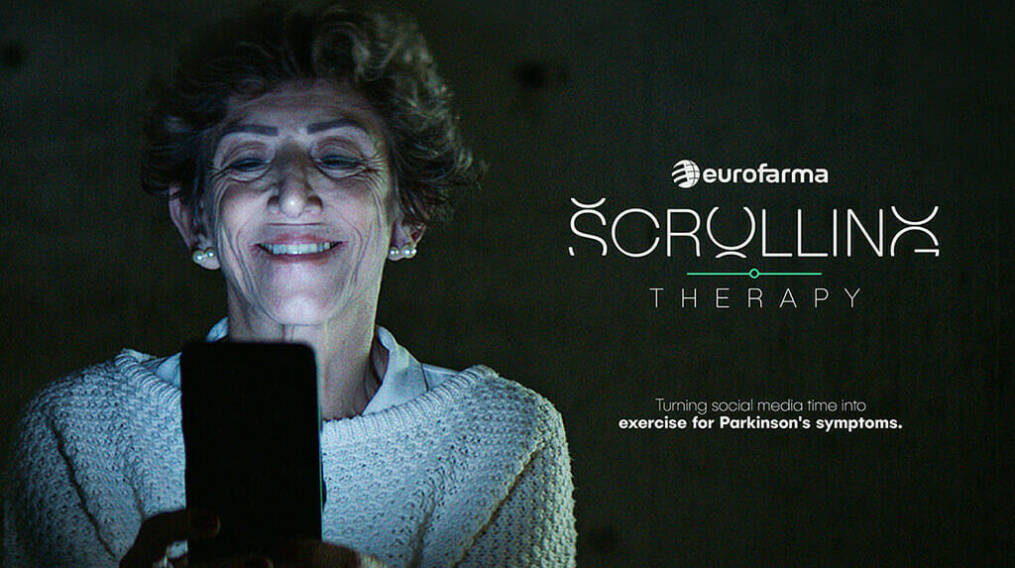
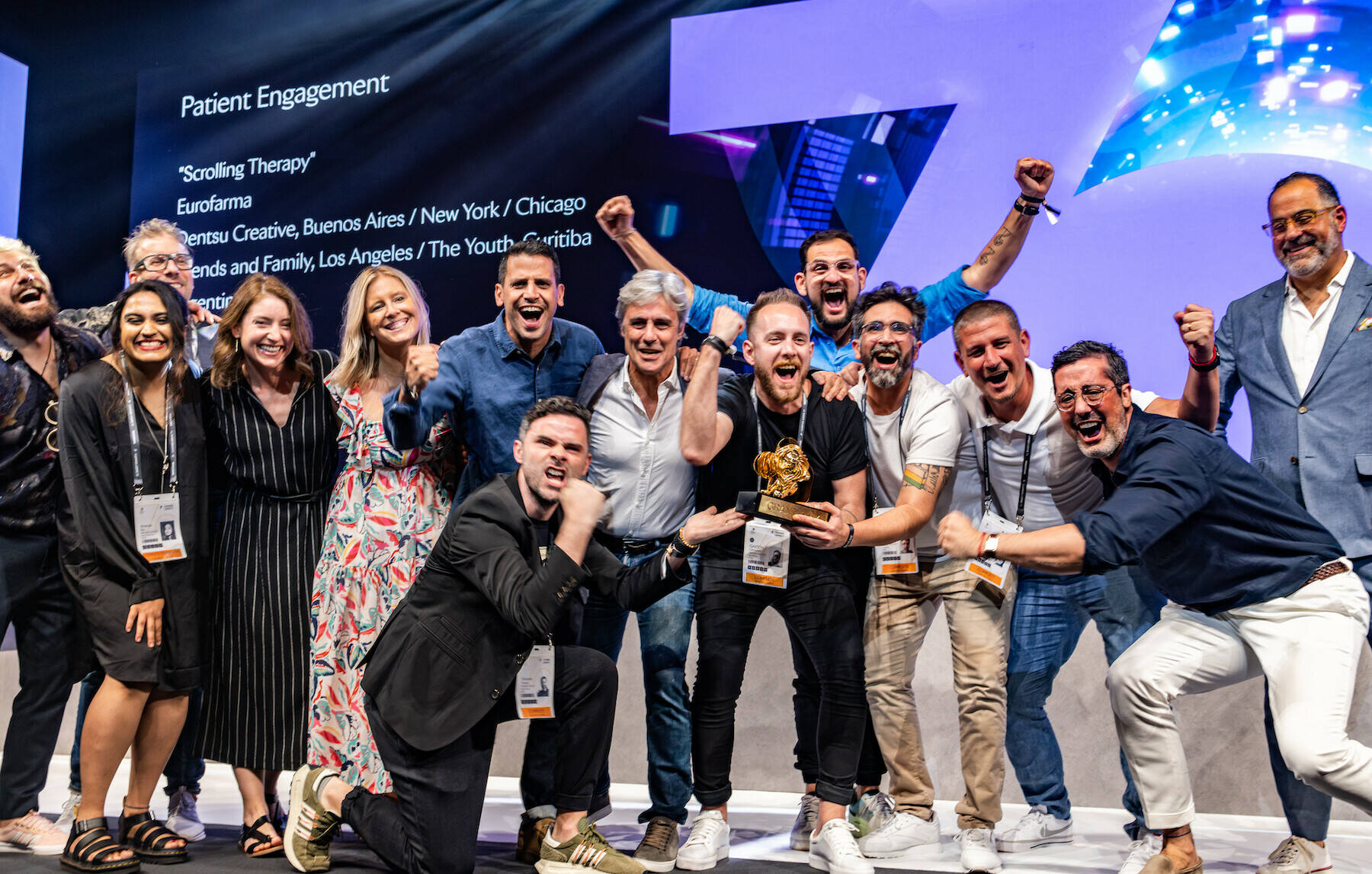


Watch our sessions in full and experience the insightful conversations with our people, partners and clients.
Panel session recordings
Moderator:
Michael Komasinski, CEO, CXM, International markets, dentsu
Speakers:
Filippo Catalano, CIO Reckitt and Polly Sumner, Chief Adoption Officer, Salesforce


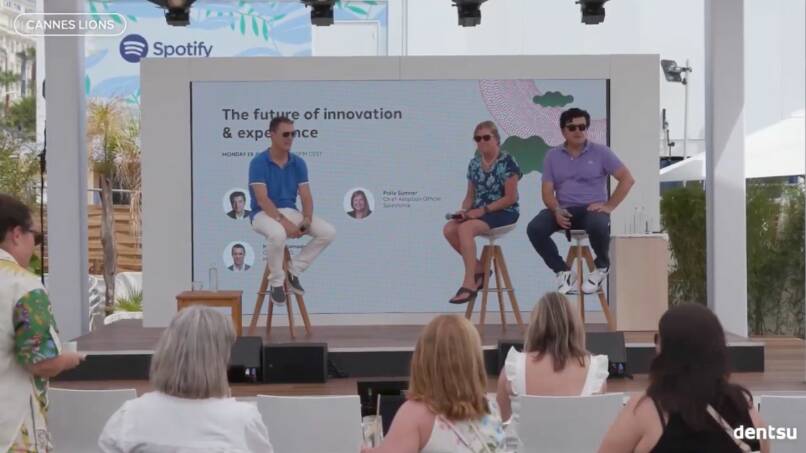
video
Future of Innovation & Experience




Client connect
“The collective energy of people who are here… That fuels a lot of creativity”.
Hear from Josh Earnest & Mike Law talking about the power of creativity bringing energy into the brands.
Gallery


Back to top




Back to top

Gallery


Client connect
“The collective energy of people who are here… That fuels a lot of creativity”.
Hear from Josh Earnest & Mike Law talking about the power of creativity bringing energy into the brands.
Watch our sessions in full and experience the insightful conversations with our people, partners and clients.
Panel session recordings



video
Moderator:
Michael Komasinski, CEO, CXM, International markets, dentsu
Speakers:
Filippo Catalano, CIO Reckitt and Polly Sumner, Chief Adoption Officer, Salesforce
Future of Innovation & Experience
Personalization is the key to delivering meaningful customer experiences and garnering consumer engagement. In order to achieve true personalization, organizations need findable, transferable and interoperable data that can be propagated across channels, as well as a content engine that can respond to the demands dictated by the desire for 1:1 brand experiences.
The success rate of traditional, multi-year digital transformation programs was low and for years ‘hyper-personalization’ was a much talked about but seldom achieved ‘white whale’ chased by experience marketers, who were lacking excellence in either if not both of the two camps. A session held at the dentsu Beach House, featuring industry leaders from Reckitt and Salesforce discussed how now the combination of composable architectures and Generative AI is now enabling enterprises to move at the increasing pace of change and tooling them to make hyper-personalization a reality.
Hyper-personalization Is No Longer Just a Buzzword

Driven by the controversy surrounding the 2022 World Cup held in Qatar, brands are steering away from the more traditional opportunities for awareness that sports provide and are rather looking to discard – or even quite openly subvert – the sports playbook.
The most notable cases include ‘The Forgotten Team’ - a partnership between MEO (Portugal’s top broadcaster), Amnesty International and dentsu, generating awareness about human rights abuse and raising funds for victim’s families with the creation of an electric yellow jersey inspired by the workers’ vests, which is up for consideration across a number of categories – and ‘Unbanned Armband’ a mod for EA Sports Fifa 23 videogames that makes it possible for players to wear the One Love armband that FIFA had banned national teams from using at the Qatar World Cup. This mod was created by All Out, a global NGO advocating for the rights of the global LGBTQIA+ community and is shortlisted in the Gaming category.
‘Defiant’ Sports Activations

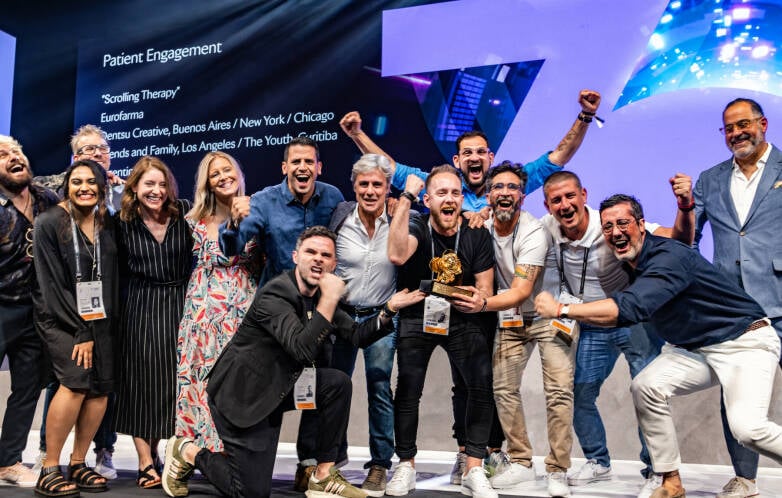

Highlighting How Technology Can Solve for Human Needs
One of the most remarkable examples of technology solving for human needs celebrated by Lions was Dentsu Creative and Europharma’s ‘Scrolling Therapy’ campaign, which was awarded the Gran Prix in the Pharma category. In this case study, patients with Parkinson’s interact with social media through facial expressions while looking at their mobile phones – scrolling, liking, and reacting to post thanks to the power of AI and facial recognition. This type of exercise helps them slow the progression of symptoms of this neurodegenerative disease.
Mastercard’s ‘Where to Settle’ platform helped Ukrainian refugees who crossed the Polish border with an online and mobile tool that combines multiple datasets to find the most promising area in Poland to make their new home.
Lastly, we’ve also seen an example of creative work improving the human experience of those who make the technology we increasingly rely upon: Intel’s OneMono is a font designed to reduce eyestrain for computer programmes.

Coming into Cannes Lions 2023, after months in which Generative AI has dominated discourse in the media due to Chat GTP’s incredible adoption rate, it’s not a surprise that much of the programming is focused on how the increasing pace of technology innovation may affect human creativity. Responding to these underlying concerns, a lot of the work showcased and up for juries’ consideration is highlighting how, rather than work in contrast with human qualities, technology is helping us address human needs.
For instance, while an immediate concern often cited when discussing AI is its potential impact on human jobs, a case study discussed in the ‘Gen AI: Creativity & Talent’ session at the Palais revolves around using AI to help the UK Department of Works & Pensions reduce processing times for the over 30 million comes it receives from citizens in a year from several months to within a day.
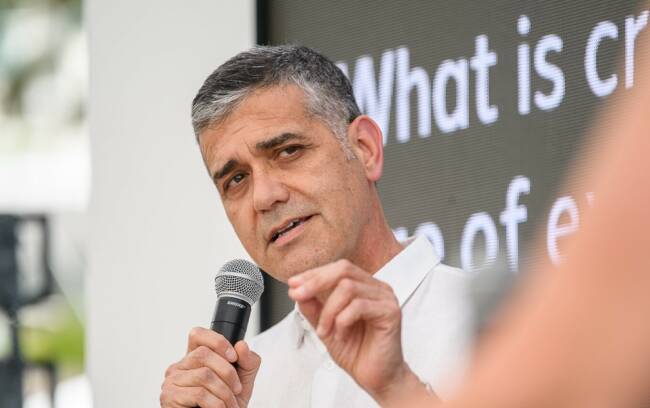
Recap of the first day
Recordings
Gallery
Client connect
Recap
Monday 19 june

